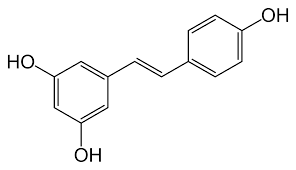Resveratrol Supplements Good For The Heart?
Video Link: https://vimeo.com/182859064
Video Download: Cardiovascular Benefits Of Resveratrol
Video Stream: Cardiovascular Benefits Of Resveratrol

Cardiovascular Benefits of Resveratrol
Although Resveratrol offers many exciting potential benefits in systems throughout the body, nowhere do these benefits offer keener prospects for long-term health and longevity than within the cardiovascular system.
This article will discuss the body of scientific research concerning Resveratrol's effect on the heart and the rest of the cardiovascular system.
Resveratrol Prevents Arterial Plaque from Forming
One of the most dangerous diseases related to inflammation is atherosclerosis. This disorder is also referred to as the Hardening of the Arteries. In patients suffering from this disease, the arteries become clogged with cholesterol, fat, white blood cells, and other substances, which stick to cell walls and prevent the heart from pumping blood effectively.
The severe blockage can lead to heart attack, stroke, or death at a certain point. One reason atherosclerosis occurs is that small apparatus known as cell adhesion molecules encourage white blood cells to become stuck to the walls of the arteries.
After these white blood cells become stuck, they promote inflammation within the sensitive tissue of the arteries.
There is evidence that Resveratrol can slow the rate at which atherosclerosis occurs by limiting the ability of adhesion molecules to become activated.
Atherosclerosis also changes how Smooth Muscle Cells within the blood vessels function. As these muscle cells grow in response to damage, they increase the severity of the blockage. Preliminary research suggests that Resveratrol can limit this process in a laboratory setting.
Resveratrol Stimulates the Production of Nitric Oxide by the Cardiovascular System

Resveratrol has been shown to reduce blood pressure and increase freedom of blood flow by activating an enzyme called Endothelial Nitric Oxide Synthase, abbreviated eNOS. Nitric Oxide is one of the most essential chemical messengers in the body.
This gas is one of the primary agents which control blood flow, stimulating the arteries to open in a process known as vasodilation.
Most cardiovascular ailments in aging men and women are related to high blood pressure and medical issues which occur about high blood pressure. If the arteries are not producing sufficient Nitric Oxide, this prevents the arteries from functioning healthily. If Nitric Oxide does not correctly stimulate the arteries, then the arteries will not open up properly to allow for optimal blood flow.
The enzyme eNOS is directly responsible for Nitric Oxide production because it interacts with Vascular Endothelial Cells, stimulating them to release Nitric Oxide, thereby controlling blood flow effectively through the body. Resveratrol has been shown to increase the receptivity of endothelial cells to eNOS stimulation.
Resveratrol Slows Down Platelet Clotting
Blood clotting is essential for health and healing, but in many patients, the blood begins to clot too readily, which can cause significant problems. A process known as Platelet Aggregation is among the initial steps of the clotting process, and in aging patients with cardiovascular complications, internal blood clotting can cause blockages in the arteries leading to both the brain and the heart.
If blood clots block off or restrict regular blood access to the brain or the heart, this leads to conditions known as a stroke and heart attack.
There is laboratory evidence that Resveratrol reduces the activity of platelet aggregation, reducing the size and danger resulting from persistent clots. It should be remembered, however, that in the laboratory setting in which this research was performed, human cardiovascular cells were exposed to concentrations of Resveratrol that were higher than the levels that would most likely be achieved by taking Resveratrol by mouth.
This does not mean that the benefits of consuming Resveratrol offer no benefit. Still, the results displayed in vitro are likely more potent than oral ingestion in a human patient.
Red Wine, Resveratrol, and Your Health
Researchers have long been aware that modest ingestion of alcohol correlates with a healthier cardiovascular system. Nowhere in the world is this more apparent than in the nation of France.
France consumes more wine than perhaps any other country in the world. Amazingly, it also has one of the lowest incidences of heart disease as well. Although this may already be surprising at face value, it is even more fascinating because of a very high percentage of French smoke. They also engage  in dietary practices which are high in saturated fat.
in dietary practices which are high in saturated fat.
Typically, smoking and saturated fat correlate with increased heart disease levels. Still, in France, some outside variable protects the body from these adverse health choices, which generally wreak havoc upon the body. In the scientific community, this is known as the French Paradox.
After decades of study, it seems that the consumption of alcohol, red wine, in particular, has allowed the French to live healthier lives despite their vices. In recent years, it is becoming more and more widely hypothesized that the Resveratrol in Red Wine is the primary actor which safeguards the health of the French heart.
Red Wine Flavonoids
In addition to Resveratrol, Red Wine also contains a very high concentration of molecules known as flavonoids. Flavonoids share many health benefits with Resveratrol. They are proven to reduce the effects of inflammation while also safeguarding the body as potent antioxidants.
There is also evidence that they support the health of the arteries in other ways that we have yet to understand fully.
In a number of studies, it has been noted that patients that consume alcohol moderately yet regularly have a risk of heart disease that is twenty to thirty percent lower than individuals that do not consume alcohol at all.
Responsible alcohol consumption does have some beneficial effects on health. It also seems clear that flavonoids, as well as Resveratrol, offer numerous benefits regarding cardiovascular health.
In animal research, rodents experienced a cardiovascular improvement when exposed to red wine, even if the wine was non-alcoholic. In human patients, a recent study showed that consumption of concentrated polyphenols from red grapes (including Resveratrol) had the immediate impact of improving Nitric Oxide release, stimulating healthier levels of vasodilation.
Consider Adding Sources of Resveratrol to Your Diet Today!
Although much of the research regarding Resveratrol and the heart is preliminary, researchers quickly realize more about this beautiful compound every year.
One should not consider Resveratrol a wonder drug that can resolve these serious medical issues. Still, it is essential to realize that increasing the level of Resveratrol in your diet can improve your health and your heart in a number of different ways.
Even if some of the exciting potential benefits of Resveratrol end up being slightly exaggerated, Resveratrol represents one of the best examples of Low Risk-High Reward experimental dietary supplementation available in the world of 21st Century Nutrition.
The following article will discuss the most effective ways to add Resveratrol to your diet!
- 0001 Resveratrol Provides Numerous Health Benefits [Last Updated On: February 11th, 2025] [Originally Added On: September 25th, 2020]
- 0002 Studies Regarding The Potential Benefits Of Resveratrol [Last Updated On: February 19th, 2025] [Originally Added On: September 26th, 2020]
- 0003 Natural And Supplemental Ways To Add Resveratrol To Your Diet [Last Updated On: May 31st, 2025] [Originally Added On: September 28th, 2020]
Word Count: 1119






